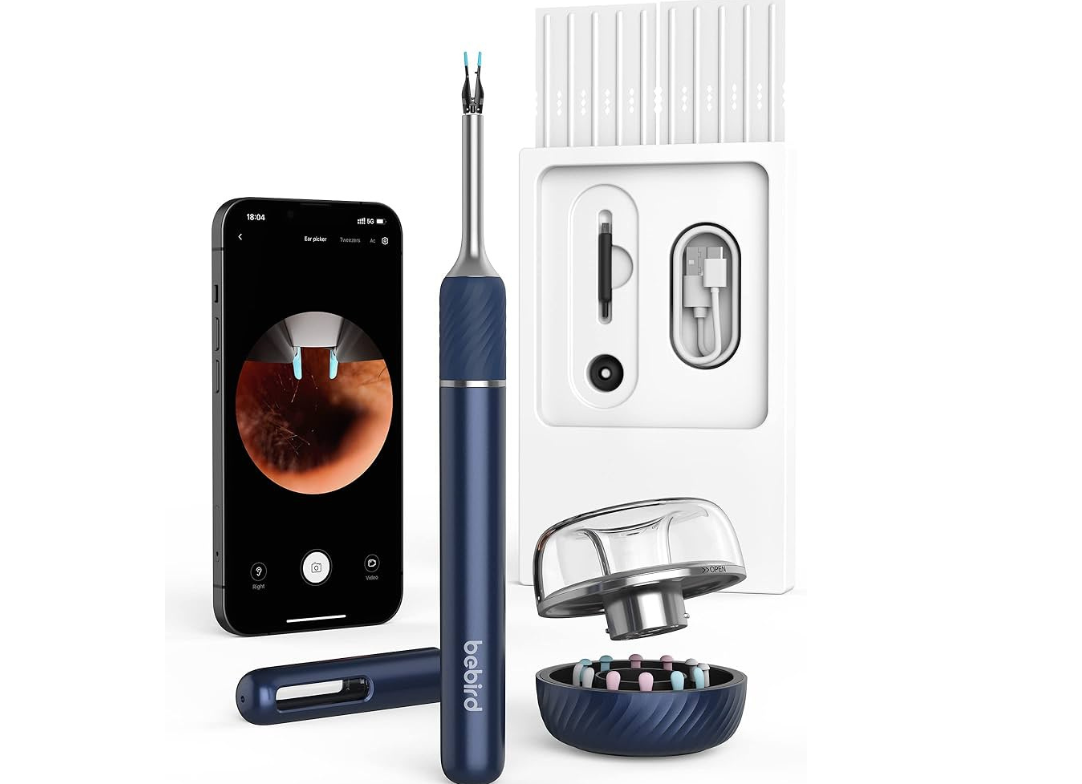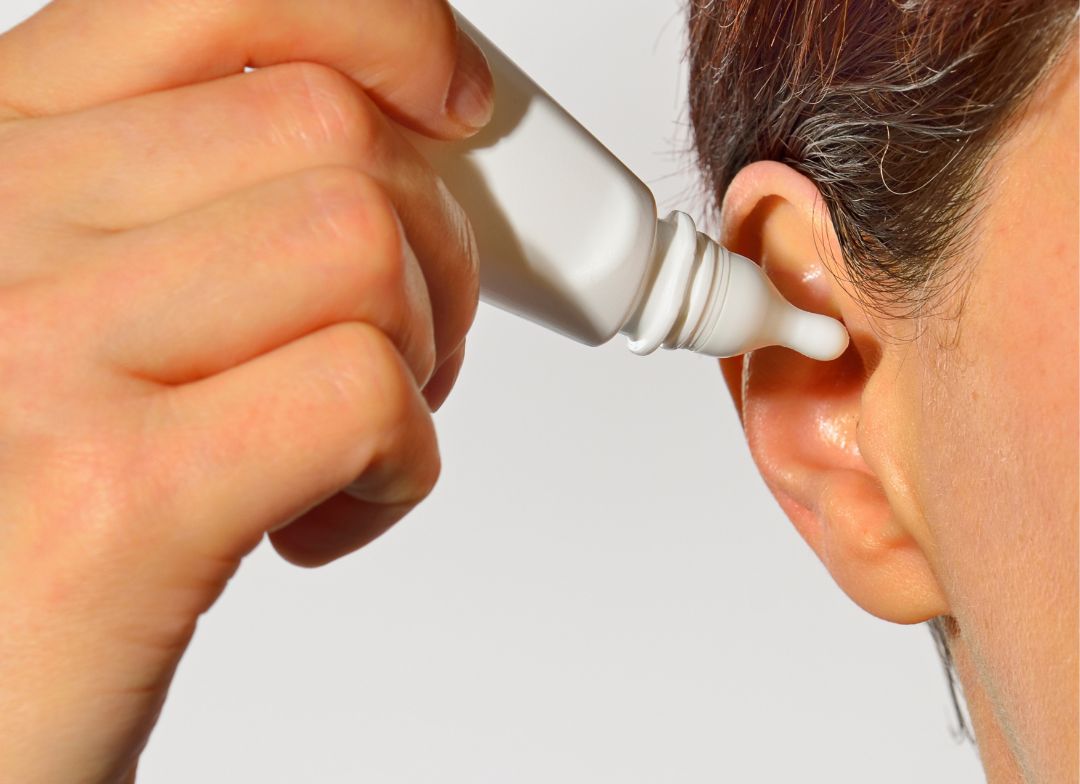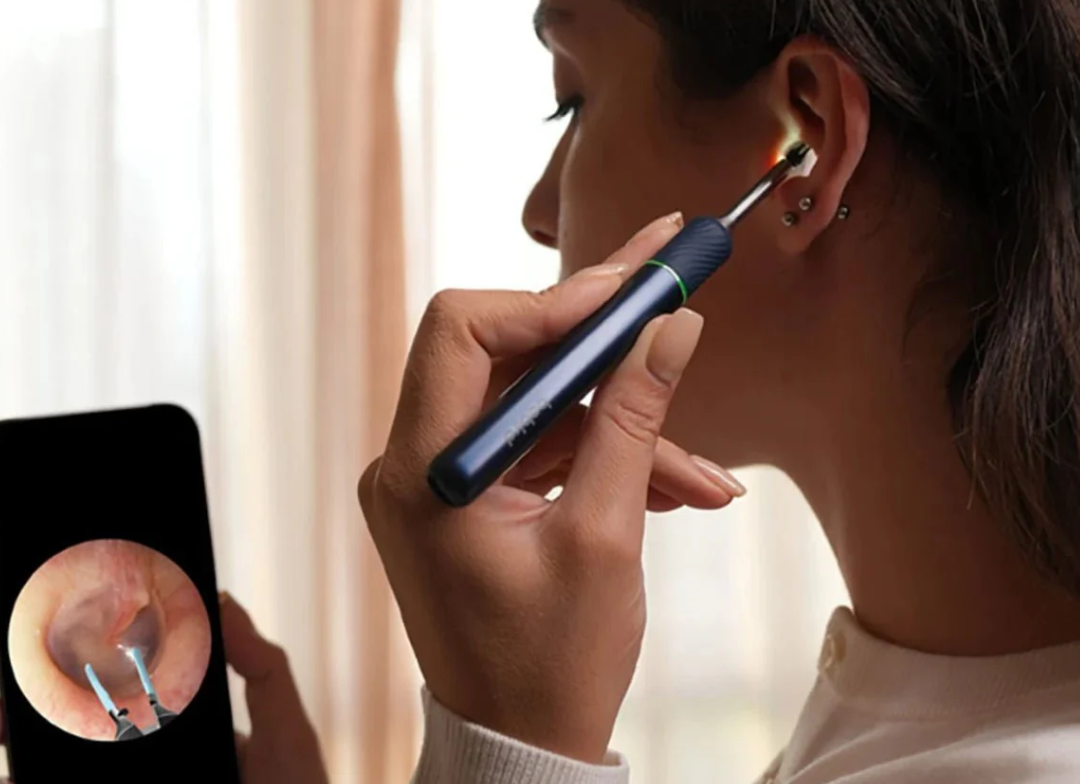Earwax plays an essential role that is to protect the outer ear, but when the sticky substance is too excessive, it can create discomfort and, sometimes, cause hearing problems. So, how often should you clean your ears? The answer is “Not Very Often”. Typically, other than excessive cerumen accumulation, or of course, if you have symptoms due to obstruction, such as hearing loss, etc. You do not have to clean your ears regularly. Excessive cleaning can be counterproductive. This article explores how to tell when your ears need to be cleaned, which methods are safest, and how often to do it, both at home and with a professional.
How Do I Know if My Ears Need to Be Cleaned?
The ear canal gradually gets rid of old wax by way of natural jaw movements such as chewing and talking. But earwax can build up sometimes, and it might not come out on its own. These are the signs that your ears may need to be cleaned:
-
A feeling of fullness or blockage in the ear
-
Muffled or reduced hearing
-
Earache or discomfort
-
Ringing in the ears (tinnitus)
-
Itching or irritation inside the ear
-
Odor or discharge from the ear
If you are facing these symptoms, you might have wax accumulation that needs to be cared for with the help of safe ear wax cleaner tools or with a doctor.

Is It Good to Clean Your Ears Every Day?
No, it is not advisable to clean your ears daily. Cleaning every day can stimulate the ear canal, remove natural oils, and make it more susceptible to infection or injury. Specifically, using cotton swabs can push wax further into the canal, resulting in blockages and possibly even perforations to the eardrum.
Your ears generally tend to look after themselves. If you have to do it so often, it can be a signal that you are overproducing wax or have narrow ear canals. In those situations, daily cleaning is not the solution; consulting with a healthcare professional may be a better option.
How Often Should You Clean Out Your Earwax?
For most people, cleaning out the wax is not something that needs to be done frequently. As a matter of fact, your ears are designed to be self-cleaning. Earwax makes its way out of your ear gradually, due in part to your chewing and talking. For most people. Cleaning once every few weeks or even once a month suffices.
If you don’t experience any symptoms, like itching, the blocked feeling, or hearing loss, there’s a good chance you don’t need to clean them at all. But if you wear hearing aids, or earbuds, or simply produce a preponderance of earwax, you may need to clean your ears more often.
Do not clean them so frequently, as it can worsen things. Excessive cleaning will dry the ears and irritate or push the wax deep inside. Pay close attention to your ears, and that’s the best way. Only clean them when you think you actually require them. And always follow safe processes, such as using a soft ear wax cleaning tool.
What Is the Healthiest Way to Clean Your Ears?
The safest and healthiest methods for cleaning your ears do not include putting anything deep in the ear canal. You can gently wipe the outer ear (the part you can see) with a warm, moist cloth. Inside the ear, use gentler methods that avoid forcing wax deeper.
Use Bebird’s Earwax Removal Kit
If you want a more advanced, safe tool, then choose a Bebird earwax removal kit. It is basically a small camera with a delicate tool that provides you with the ability to view the wax and remove it from your ear. This makes it more comfortable and safer, and takes away the threats that are inherent to cleanup using cotton swabs or cleaning without vision.
This type of earwax removal kit is particularly useful for people who produce excess wax regularly. As you can see, what you are doing to yourself, the possibility of injury or over-cleaning is greatly reduced.
Try a Gentle Ear Suction Tool

Use Over-the-Counter Drops or Irrigation
You can also purchase ear drops that soften wax so it can drain out naturally. Some people irrigate soft wax out using warm saline or hydrogen peroxide, but you should only do this if you don’t have an ear infection or eardrum issues. Don’t do your own irrigation unless you can be sure it’s safe for your ears.
How to Prevent Excessive Earwax Accumulation?
If you take care of them, you don’t need to clean your ears very often. Here are some easy ways to keep your ears from getting too waxy:
-
Don't put anything in your ears (Key objects people insert into their ears include cotton swabs, pens, fingers, etc).
-
When working in dusty or dirty areas, wear ear protection.
-
Dry your ears well, particularly after swimming or bathing.
-
If you wear earbuds, make sure that they are clean so that they don’t push dirt or bacteria into your ear.
- Drip a few natural drops of oil from time to time, just to prevent the ears from getting too dry (e.g., olive or mineral oil)
What Happens if You Don’t Clean Your Ears for Years?
If your ears are good “self-cleaners,” you may never need to clean them. But in certain cases, if you neglect cleaning your ears for years, the wax can harden and build up too deeply inside, resulting in blockages. Over time, this may lead to:
-
Hearing loss or muffled hearing
-
Pain or pressure in the ear
-
Higher risk of ear infections
-
Balance issues or dizziness
- Tinnitus (ringing or buzzing sound)
How Often Should You Clean Your Ears with the Doctor?
People who are prone to earwax problems should see a doctor once or twice a year for ear cleaning. A doctor can remove deep earwax without harming the ear using instruments such as a micro-suction device or an irrigation system.
You should also visit a doctor if:
-
You’ve had surgery or ear problems in the past
-
You wear hearing aids
-
You have impacted wax that home tools can't handle
-
You have pain, discharge, or hearing loss
Home tools like ear suction tools or a cleaner tool are fine for regular maintenance, but for heavy buildup, or when you’re not sure what’s safe, professional cleaning is best.
Final Thoughts
Only clean your ears when necessary, as they mostly clean themselves. Stay away from cotton swabs, and opt for safe instruments such as ear cleaning tools or ear suction instruments in case you do need to clean at home. To maintain healthy ears, listen to your body and be aware of signs of buildup. And of course, in cases of any doubt or ongoing problems, consult a physician to prevent damaging your ears. Ear health matters — don’t neglect it or overdo it.
Related Reading:
Can You Use Hydrogen Peroxide to Clean Your Ears?
A Guide to Gauge Sizes for Ears: What You Need to Know
Personal Hygiene Products List: 10 Must-Haves for Daily Care
















Leave a comment
All comments are moderated before being published.
This site is protected by hCaptcha and the hCaptcha Privacy Policy and Terms of Service apply.